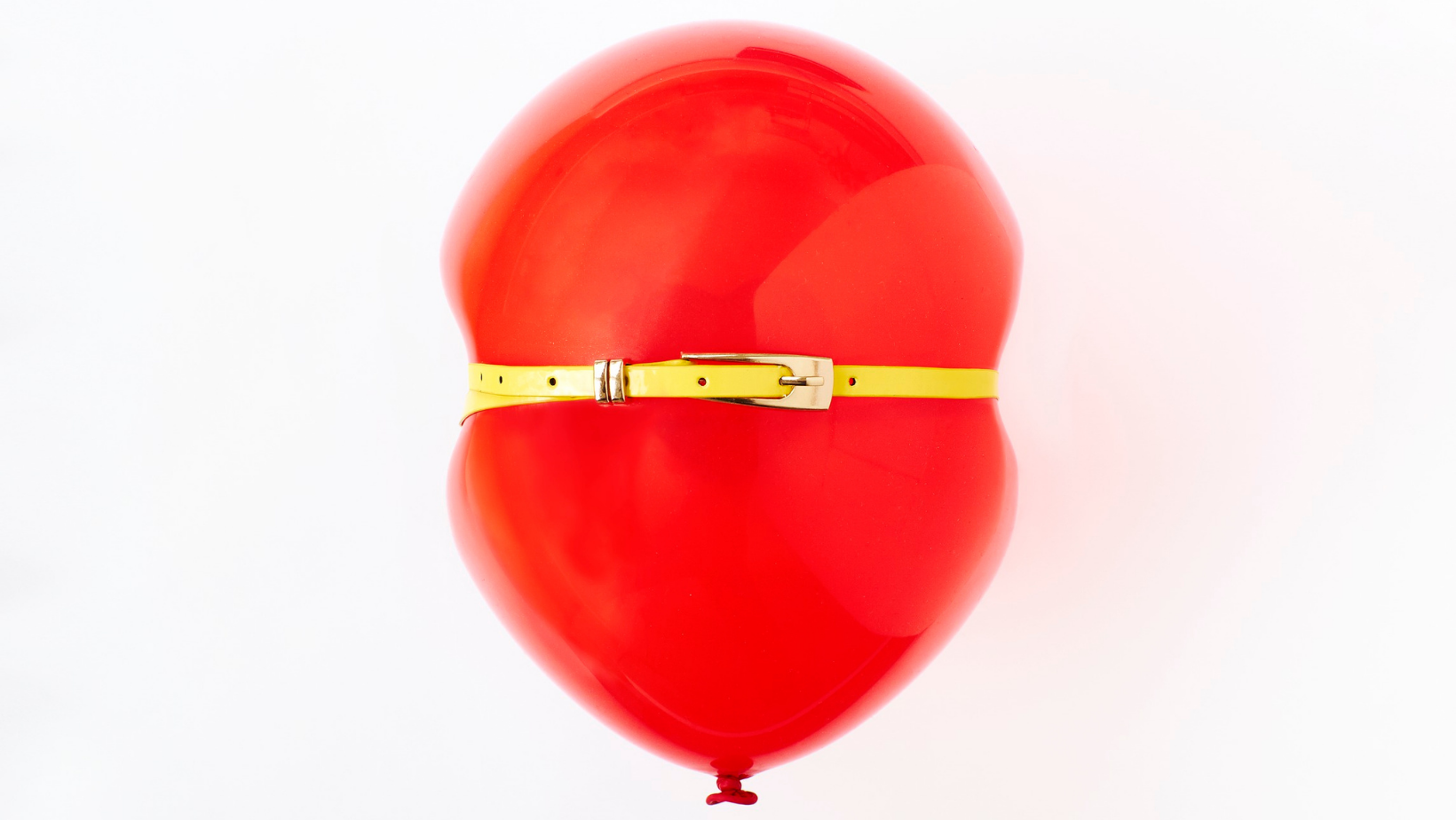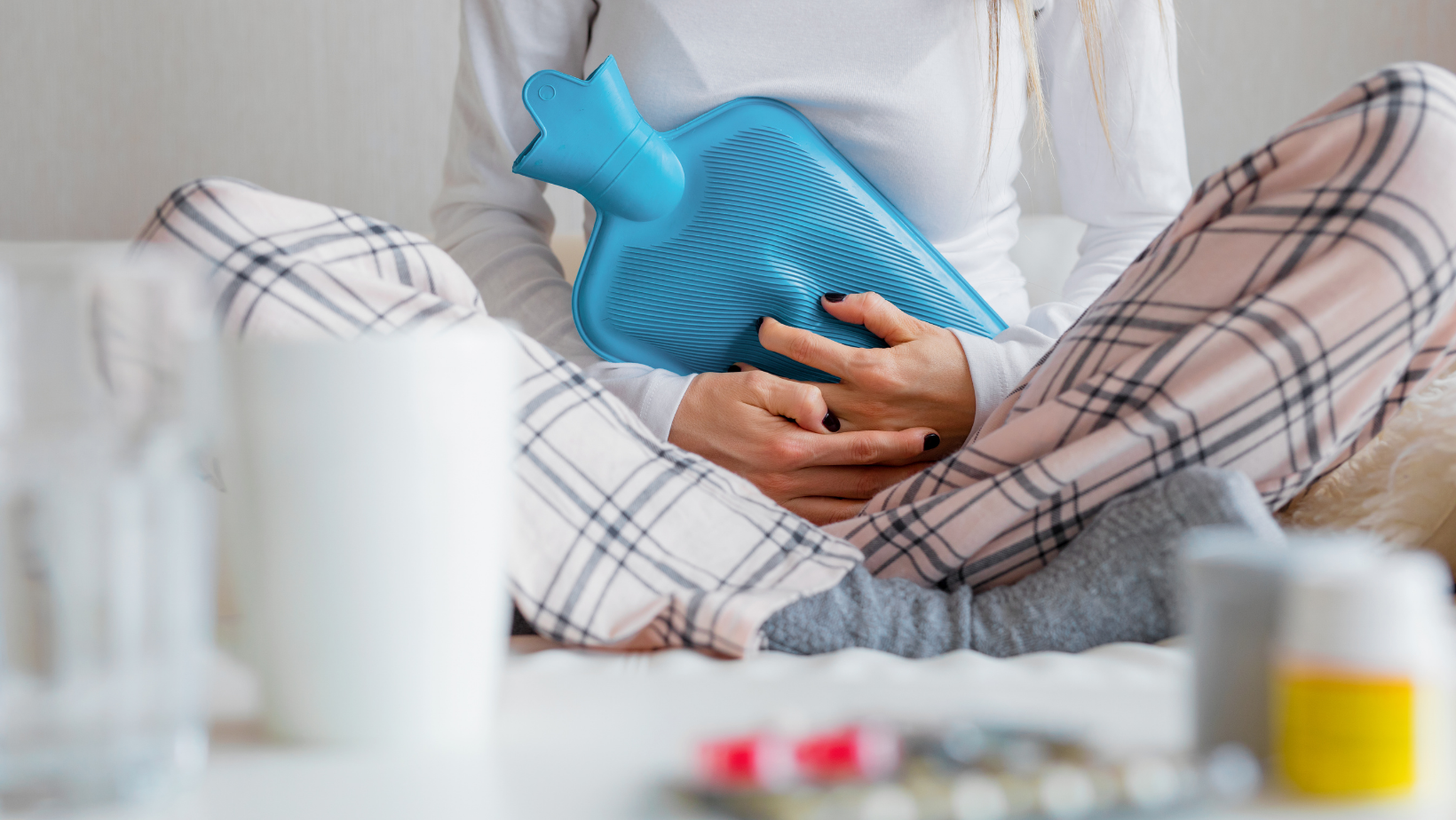How To Relieve Bloating
What exactly is Bloating?
Bloating refers to the uncomfortable sensation of abdominal swelling which refers to an actual increase in the width of your abdomen.
If you’re feeling bloated, remember you’re not alone. It’s a common symptom of Irritable Bowel Syndrome (IBS). Studies have shown that over 90% of people with IBS experience bloating.
It’s frustrating, it’s uncomfortable, and can often be the only visible sign that your digestive system isn’t happy. Bloating is very common however there can be lots of reasons why you bloat and so lots of ways to help reduce it.
Although most people assume that bloating can be caused by specific foods, bloating can actually be caused by anything from a food intolerance to stress levels. Food transit time (how fast or slowly you digest your food and how fast or slowly it moves through your digestive system) and SIBO can also be potential trigger for bloating.
Bloating After Food
As I mentioned above bloating after food can be caused by food sensitivities, how well you digest your food and the bacteria in your stomach as well as how stress you are.
Food Sensitivities
When you are allergic to a food, the reaction tends to be fast and dramatic causing anything from swelling and anaphylaxis to vomiting and nausea. After this you may experience some bloating. However bloating is more common in food intolerances than in allergies. A food intolerance can occur when your body has difficulty digesting certain foods. When this occurs over time, large food particles (proteins) may enter the bloodstream.
When food particles enter the bloodstream, the immune system can sometimes identify these food protein particles as “foreign” and produces IgG antibodies to “attack” the food in question. This response is your immune system’s natural defence mechanism to ward off harmful invaders in the body which can create inflammation.
This inflammation can cause bloating and other digestive issues.
Digestion Issues
Having a sluggish digestive system or constipation can lead to bloating as food particles remain in the digestive system longer and begin to ferment causing a build up of gas.
A digestive system that moves too quickly can also cause bloating as food is not absorbed properly depriving you and your digestive system of essential nutrients and not giving your good bacteria the food they need to thrive, break down food efficiently and decrease gas.
Physical issues with our digestion, bowel distension, colitis, diverticulitis, gastritis, and inflammation - even abdominal restriction caused by clothing - can also cause bloating.
Bacteria Overgrowth
Our gut microbiome is made up of lots of different micro organisms including different types of bacteria. These bacteria help us to break down foods into nutrients, produce energy and also give us energy and building materials that keep our digestive system healthy. Too much bacteria, the good bacteria in the wrong part of the digestive system (SIBO) or bad bacteria can disrupt this and cause bloating.
Small intentional bacteria overgrowth or SIBO happens when good bacteria in your digestive system are in the wrong place. This can result in pain and cramping including back pain, nausea, excess gas and severe bloating. Once a test has confirmed that you have SIBO , it can be treated effectively with antibiotics, herbs or diet changes (or a combination of all three). There is more than one type and many causes of SIBO so it’s important with SIBO to address the cause to stop it from happening again and so a recovery programme of 3-6 months should be followed for those who have been treated for SIBO.
Bloating & Stress
When we are stressed our body prioritises energy production in our muscles and joints and mental alertness in our brain and eyes. This is our fight or flight response. At the same time it deprioritises digestion so we can run away quickly and not be burdened by a heavy meal or the energy needed for digestion. When we are chronically stressed this can result in digestion problems including bloating, reflux and gas. Physical stress such as a parasite, yeast overgrowth or infection can also trigger this behaviour.
In order to improve bloating and digestion, it is necessary to continually send signals to the brain that every thing is safe and we can rest and digest. Chewing, eating mindfully and eating in a quiet relaxed environment as well as regular meals and blood sugar balance can help to reduce stress and improve digestion.
Bloating & Gas
For most people bloating is accompanied by gas. This can be upper - reflux, heartburn and burping or lower - wind. Gas can be as a result of the issues already mentioned but a cup of herbal tea can be useful to reduce gas. For burping and wind fennel, cardamom, ginger and lemon, lemon balm, peppermint or chamomile teas can be helpful. These teas are called carminative teas. Peppermint tea and peppermint oil should be avoided if you suffer from reflux, heartburn, GERD or Barrett’s Oesophagus.
Bloating before your period
Bloating before and during a period is most likely a result of changes in levels of the sex hormones progesterone and oestrogen. Bloating generally occurs well before your period starts and will go away once you’ve been menstruating for a few days. There are many reasons why you experience bloating during your period
Water Retention : Research suggests that changes in progesterone and estrogen levels cause the body to retain more water and salt. The body's cells become swollen with water, causing the feeling of bloating. Studies indicate that women retained most water and experienced the worst bloating on the first day of their period.
Changes in digestive function: During your period, your uterus contracts and releases causing mild and almost imperceptible waves, these waves impact your digestive system and may slow digestion. These changes in your digestion may result in constipation or loose stools and can cause bloating
Nutrition and lifestyle tips to support bloating
Eat carbohydrates separately from fats and protein
Carbohydrates, protein and fat all digest at different speeds. In some people, this can cause bloating if too many carbohydrate-heavy foods (especially fruit) are eaten with meals that are high in fat or protein. This is easily dealt with - try having a small amount of salad with a meal based around protein and fat, or simply separate your meals into carbohydrate-heavy vs protein and fat-heavy.
Avoid drinking water during meals
You’ve probably been told over and over again how important it is to drink enough water, but try to save it for outside mealtimes. Water alters the concentration of stomach acid, making it difficult to fully break down food and absorb the nutrients.
Try herbs and bitter foods
A great natural way to reduce bloating is to add bitter foods help to stimulate digestion and herbs are great for reducing gas. Try bitter salad leaves such as endive, rocket and chard, and herbs such as mint, thyme, parsley and coriander.
Eat mindfully
I mentioned ‘Rest and Digest as the opposite of fight or flight. When we eat in a relaxed state we calm our nervous system and body. When our bodies are relaxed, we digest our food much more effectively. Breathwork, eating away from screens and in a quiet room or with friends at a dinner table can help to relax our body and mind. Taking notice of the flavours, textures and colours of our foods can also help us to achieve a more relaxed way of eating.
Chewing
Bloating is often a result of food not being digested enough - and digestion begins in the mouth. When we are stressed or time poor we don’t set aside enough time to eat. If we chew food thoroughly, it’s more broken down by the time it reaches the stomach and is far easier to fully digest without any bloating.
Space out your meals
Your eating habits maybe affecting your digestion in other ways. Constant grazing or leaving too long between meals can affect our digestion and cause bloating. Try leaving at four hours between meals, to give your gut time to do its job properly. Spacing meals apart gives you time to properly digest food, and to ‘clean up’ afterwards – your gut will be able to move any undigested food, particles and bacteria through your system. Give your body enough time to digest and see if that improves your bloating. If you find that you experience a build up of stomach acid, pain or gas when you leave space between meals, then it is worth investigating further as this maybe as a result of stomach acid/ph issues, H Pylori and bacteria overgrowth.
Other Lifestyle Supports
Cognitive Behavioural Therapy (CBT), Reflexology, Yoga, Acupuncture and Craniosacral work can also help to reduce bloating.
Conclusion
There are many reasons why you might experience bloating. Mindful eating, chewing, deep breathing and applying heat can relieve a flare. However it is important to get to the root cause of the issues. Bloating may be a sign of food intolerances, hormonal imbalance, digestive issues, chronic stress or bacteria overgrowth.
If you would like to get to the root cause of your bloating get in touch with me or book a discovery call.




